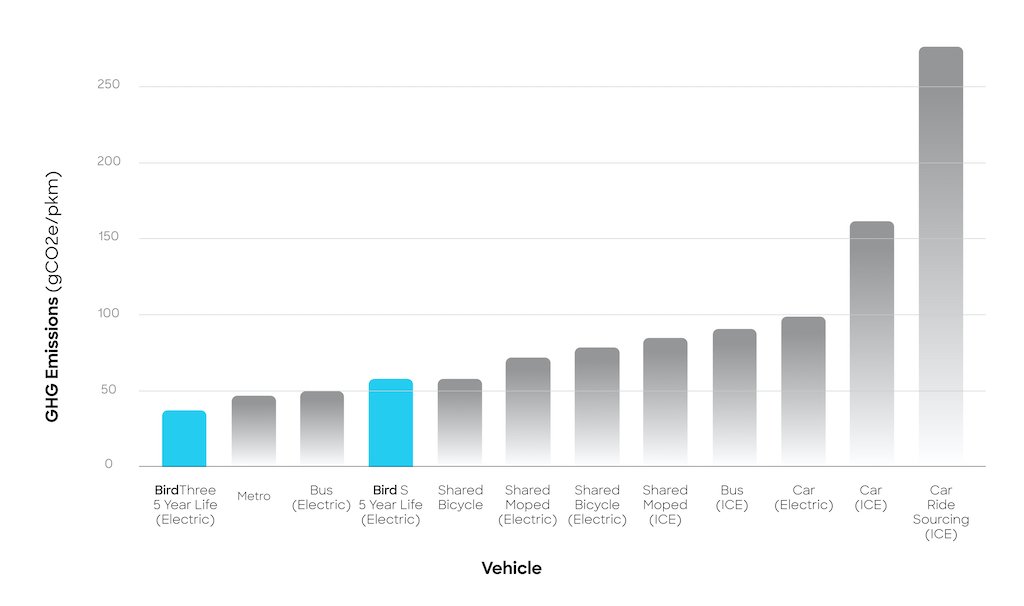Bird describes e-scooter life cycle analysis as call to action for other operators
Florida based micromobility giant Bird is set to become the first operator to achieve an ISO-critically reviewed vehicle Life Cycle Analysis (LCA), establishing a new industry standard and enabling reliable comparisons across European transport modes and vehicles.
Bird’s cradle-to-grave LCA model, which was reviewed and documented by Danish engineering consultant Ramboll, identifies the Bird Three e-scooter to be “among the most climate-friendly vehicles on the road in European cities” – including other shared modes and public transport.
Travellers in European cities using Bird’s e-scooter, the analysis found, contributed on average approximately a fifth less greenhouse gas emissions per kilometre than taking the metro, and about an eighth of that compared to taking a non-electric ride-hail car.
The analysis is now being critically reviewed by EarthShift Global, a third-party ISO expert, to ensure that the methods, data and analysis are consistent with ISO life cycle analysis standards. Bird’s LCA model is also one of the first to be aligned with the New Urban Mobility Alliance’s (NUMO) forthcoming LCA guide for cities.
Manufacturing and assembly is included within the standard along with additional manufacturing of components for replacements, transportation of vehicles to target European cities, charging and fleet management and scooters’ disposal at end-of-life.
But the LCA does not take account or Bird’s renewable energy credits, carbon offsets, or end-of-life recycling, meaning its carbon claims are understated, Bird suggests.
While the comparisons to other modes will broadly apply to other e-scooters, Bird claims its hardware and software “have been expertly crafted to create the most eco-conscious shared e-scooter available with best-in-class durability”. Features include use of aerospace-grade aluminium, smart acceleration technology to reduce wear and tear, specially designed tyres and a proprietary battery system which travels farther on fewer charges.
Bird’s CEO Shane Torchiana says, “Bird’s LCA sets a new industry standard for emissions reporting quality, enabling reliable comparisons across European modes and vehicles, and helping Bird to identify and reduce emissions wherever possible.
“It is a call to action for all other operators to follow the same standard so that together, we can address misconceptions around vehicle lifecycles and educate our city stakeholders with the information they need to make informed decisions when selecting a responsible micromobilty partner.”
Leah Lazer, research associate at New Urban Mobility Alliance (NUMO) which is part of the Washington DC based NGO World Resources Institute adds, “By following expert recommendations and best-practice methods for its LCA, Bird is demonstrating leadership in its commitment to rigorous, transparent greenhouse gas emissions reporting, which will enable city governments to make more informed decisions and – if widely adopted – enable emissions reductions across the micromobility sector.”

